Womxn in Physics making their mark
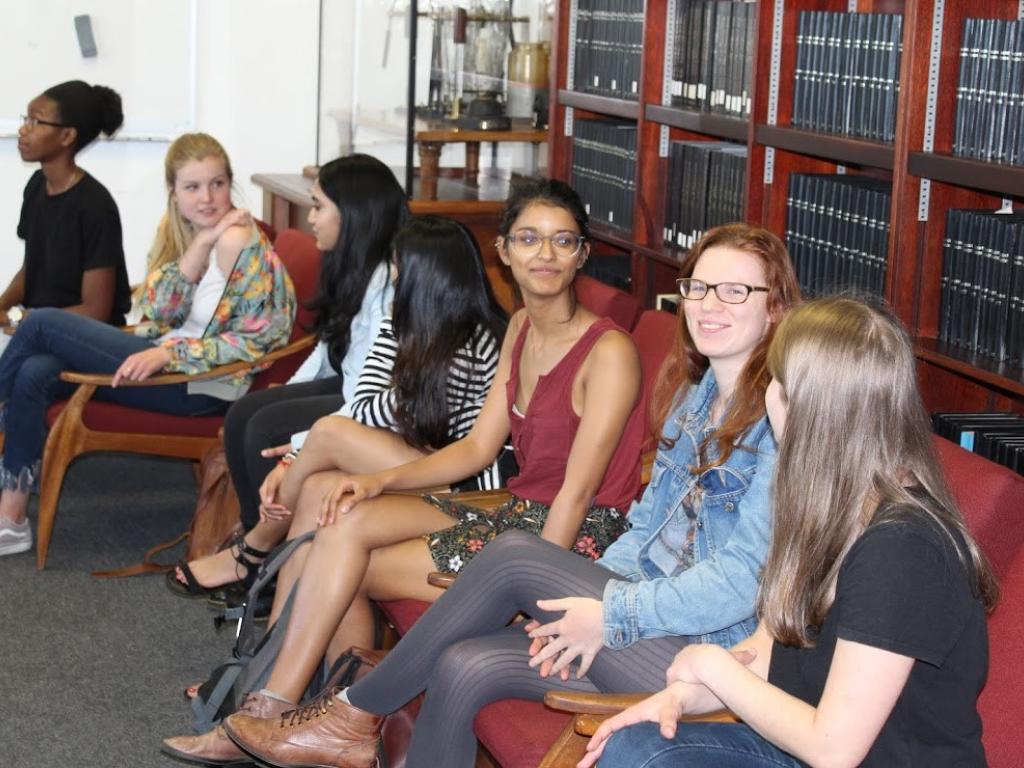
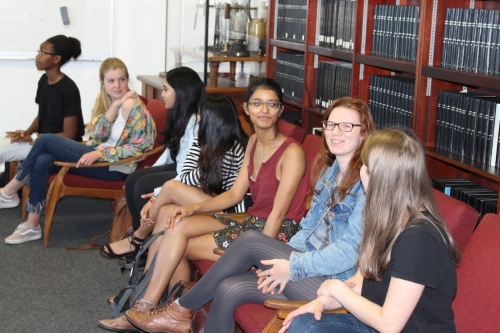
The Department of Physics recently hosted a Womxn in Physics lunch to highlight the issue of under representation of women in Physics and to encourage current students to consider further studies in the field.
At the event, two postgraduate students spoke about their journey in Physics and the lessons they have learned along the way.
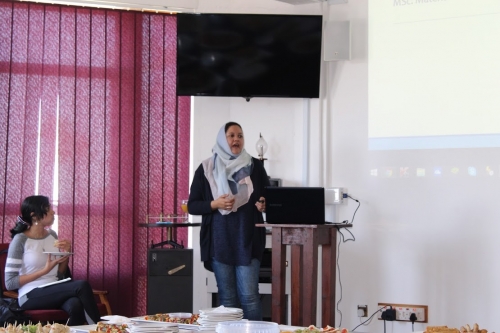
Nasheeta Hanief, (pictured above) a solid-state physics doctoral candidate in the Nano-electronics research division encouraged and inspired with her story of choices and success in her field. Nasheeta started off with a BSc in Molecular & Cell Biology and then did an honours and master’s degree in Material Science and engineering. She described how her career path was not straight and upwards. In her talk she explained how she fell in love with research and loved doing experiments and reporting about them. Initially she was determined to pursue a career path in the medicinal biochemistry field, however when that didn’t work out she pursued Material Science Engineering and was afforded many interesting opportunities of which included travel overseas for research purposes to The Brookhaven National Laboratory in Long Island, New York. She found conducting research overseas in different labs really interesting and found that the experience of presenting at conferences widened her network and built up contacts highly influential on her career path. Upon completion of her MSc she was highly intrigued by the projects offered within the Physics department which greatly influenced her decision to change fields to a solid-state Physics discipline. As there was not a great deal of equipment and resources to continue with this work, she spent a fair amount of time building up the laboratory for sample processing and went to Oxford University to expand on her research ideas and with that has developed the electron beam lithography and made a makeshift glove-box clean room here at UCT.
In terms of giving tips and advice to the women at the event, about her lessons learned, Nasheeta stressed that a career path doesn’t have to be straight forward, but can be directed by your passion and drive – emphasising that you should enjoy the research that you are doing. She highlighted the need to find a mentor who can advise you and give you input and said it is imperative to find a good supervisor in addition to this. She emphasised the importance of engaging with your peers in order to avoid the loneliness of research which takes over and becomes a huge part of your life, as well networking constantly, seeking out opportunities and international collaborators.
Lastly Nasheeta commented that women face challenges, however they should not be barriers – she herself got married while working on her Master’s, and had a child during her PhD – so it clearly is possible to juggle these different aspects of life and succeed. Nasheeta currently holds the position of Chief Scientific Officer in the Aaron Klug Centre for Imaging and Analysis in the Electron Microscope Unit and is working on completing her PhD.
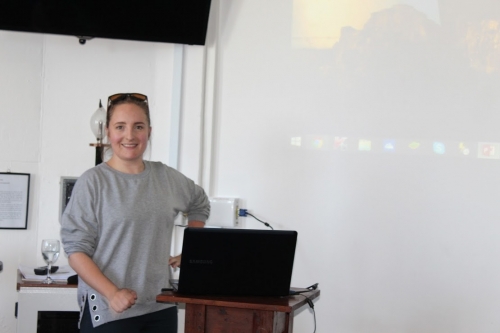
Isobel Kolbe, (pictured above) who is in the final stages of writing up her PhD in Physics, entitled her talk “In all things academic, never accept ‘No’, with a by-line ‘How to get a PhD and see the world, even if you’ve never been the best at anything physicsy”!! She encouraged the audience to push the boundaries and not be inhibited and fearful, and if someone says ‘no’ to keep asking until you get a positive response! She mentioned that you will always be surrounded by people who know more than you do and therefore it is important to swallow your pride and ask them about it. For Isobel, her studies have been the passport to extensive travel to many different countries across the globe.
Isobel works in theoretical high-energy particle physics, essentially trying to understand the results that come from the Large Hadron Collider (LHC) at CERN in Geneva, Switzerland, which is the largest particle collider in the world. She is particularly interested in the physics of heavy ion collisions, in which large droplets of matter are heated to 100 000 times the temperature of the center of the sun, recreating some of the conditions that were present in the universe about a millionth of a second after the big bang. A good understanding of matter at that time in the universe's evolution could answer some of the major open questions about the universe.
Isobel gave tips on completing a Master’s and revealed how she completed hers in 7 months and didn’t waste time in writing it up. With regard to Her PhD, Isobel said that the first year was really tough and she joked that she started therapy way too late!
The lessons that Isobel learned through her academic journey, are that the audience should take every opportunity, even if they don’t feel like it today; in physics there is no such thing as a hard pre- requisite; ask questions of those around you constantly; the trick to doing anything well is using the best parts from all the different pieces; in visa-applications there is no such thing as a minimum processing time and apply now, find the money later for opportunities.. Another lesson that Isobel learned along the way was that it is important to do as much physics and maths for as long as possible before specialising.
What does the future hold for Isobel? She is trying to organise a small project at CERN next year to fill the gap between our academic year and the northern academic year, but is really hoping to do a postdoc in the USA starting in September 2019. Postdocs are usually 2-3 years long, and after doing this, she would really like to come back to South Africa and take up a position as a researcher at a South African university, maybe even starting her own research group at a university that doesn't currently have a theoretical particle physics research division! Exciting challenges for someone who likes pushing the boundaries!
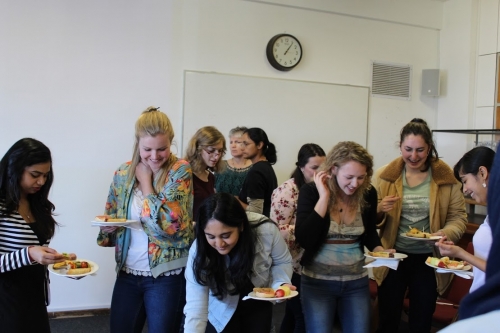
Women in Physics enjoying a lunch at the talk
